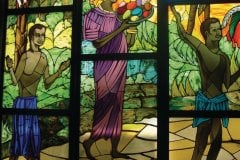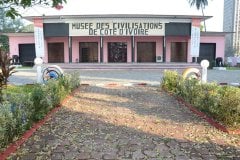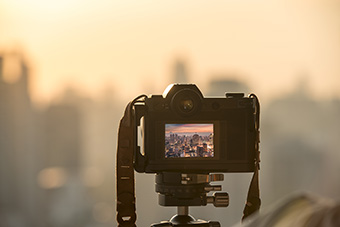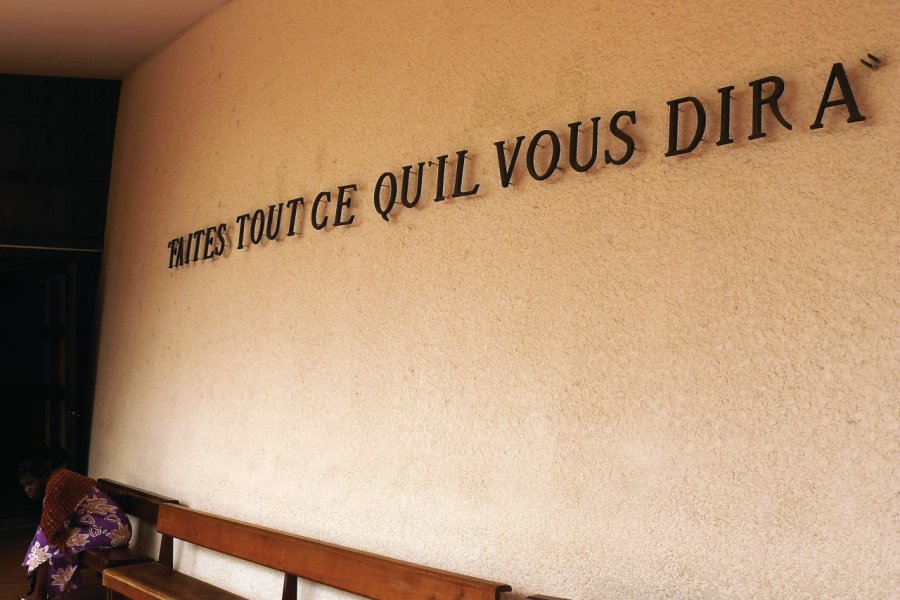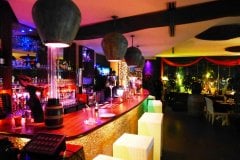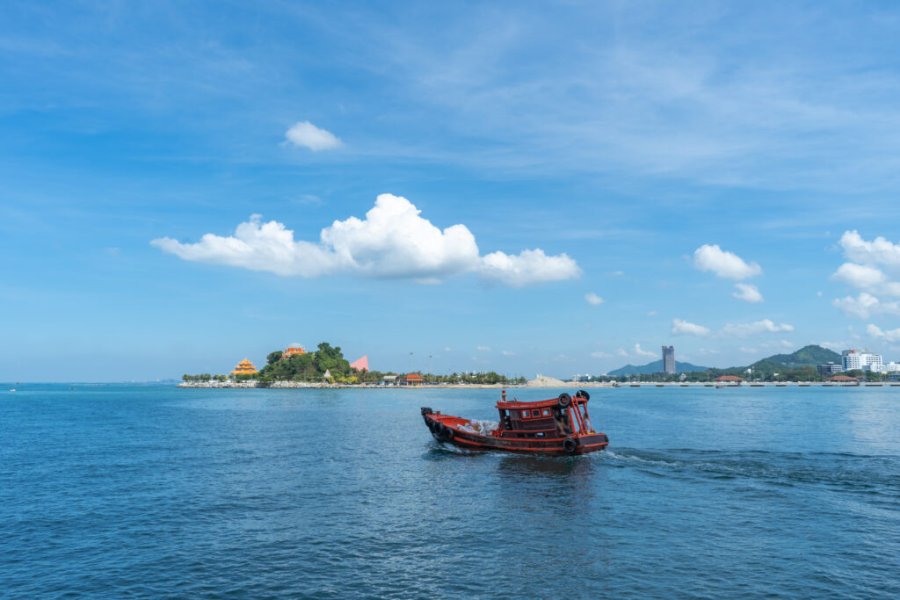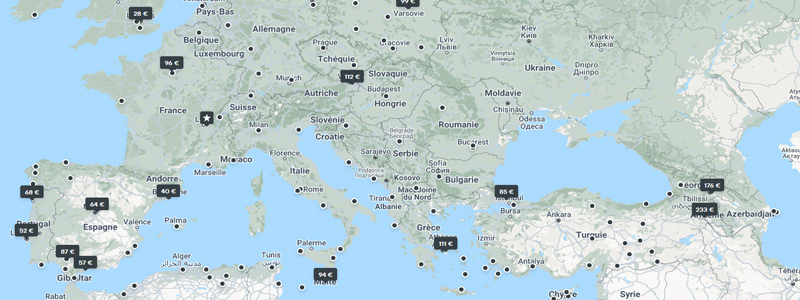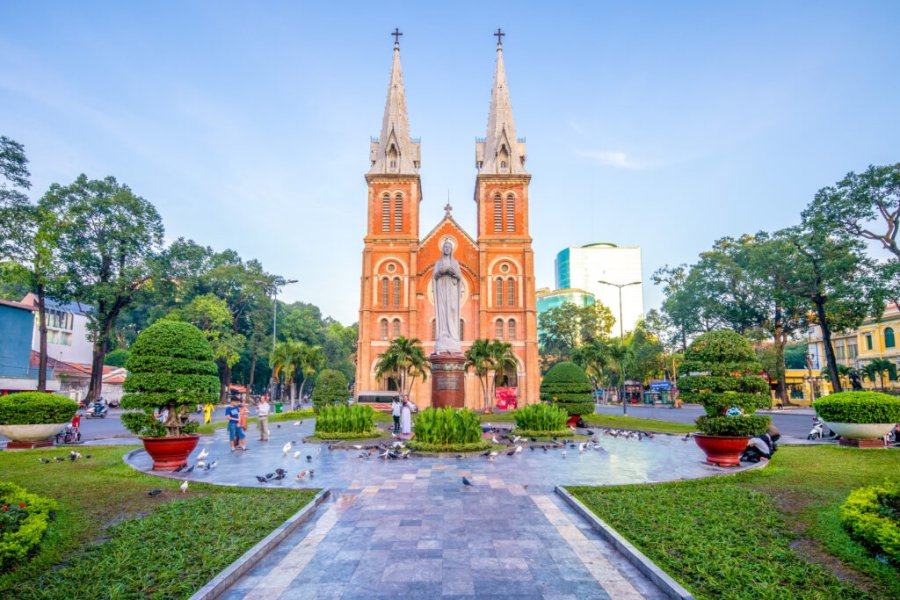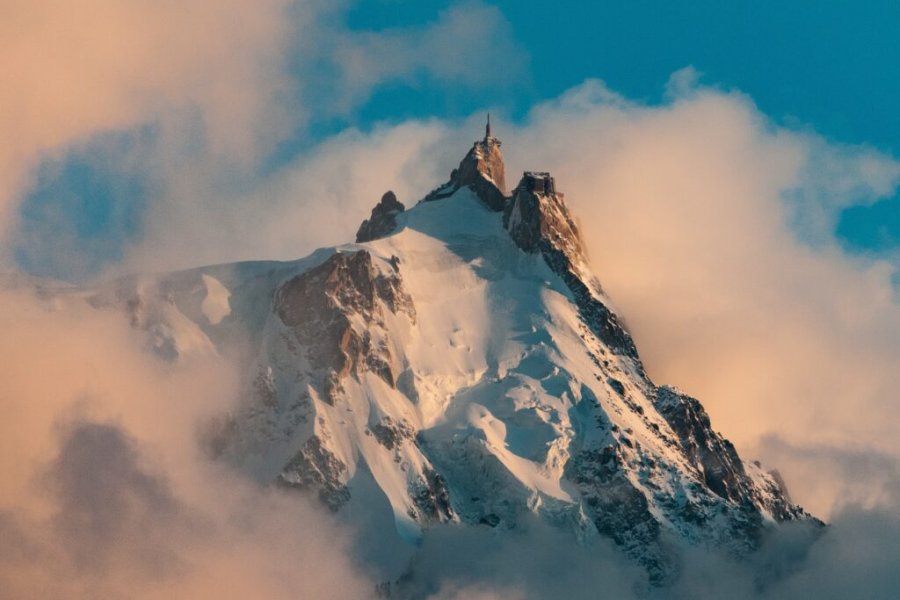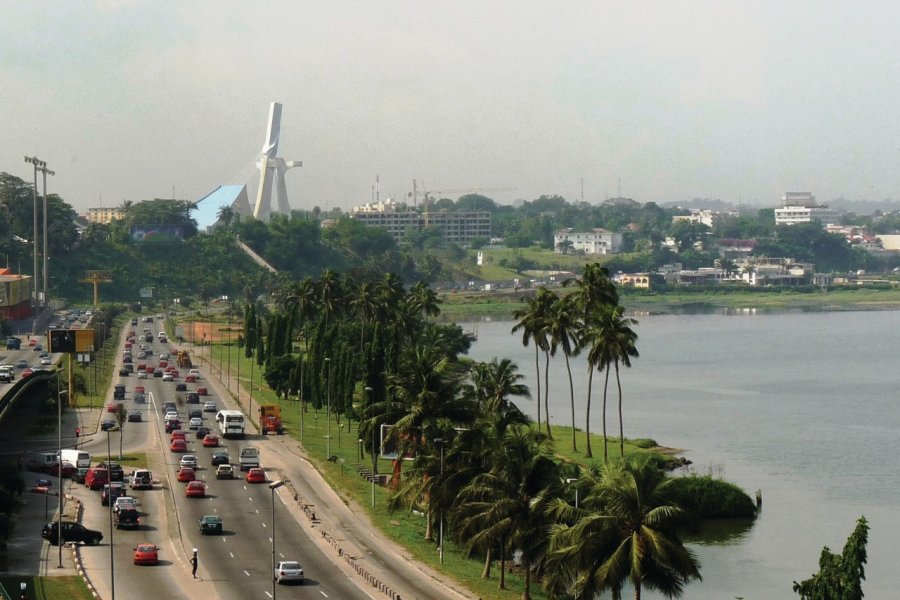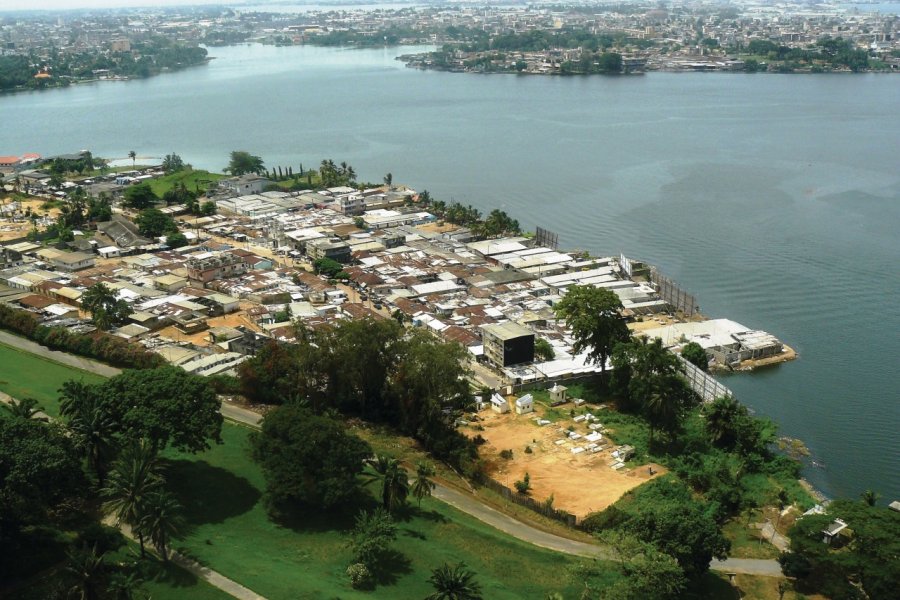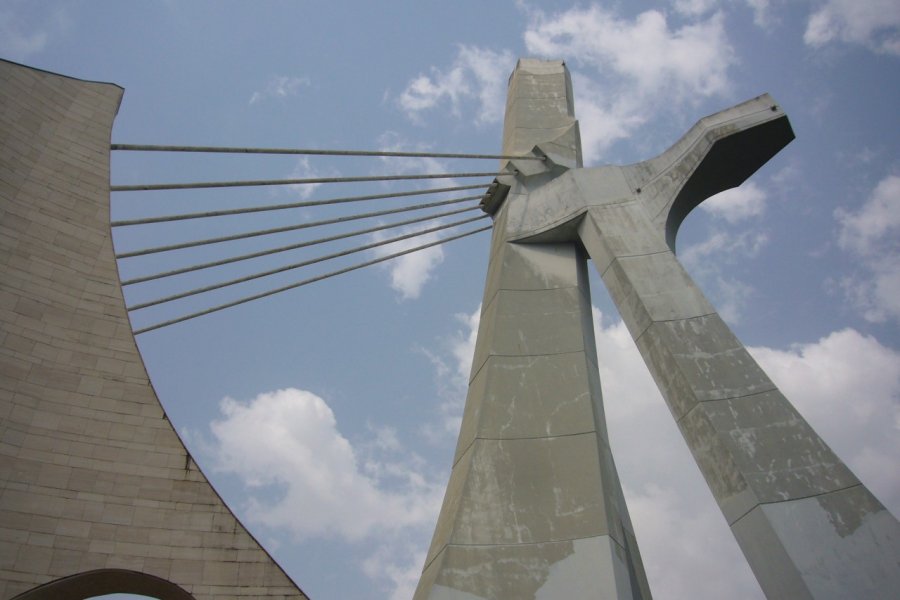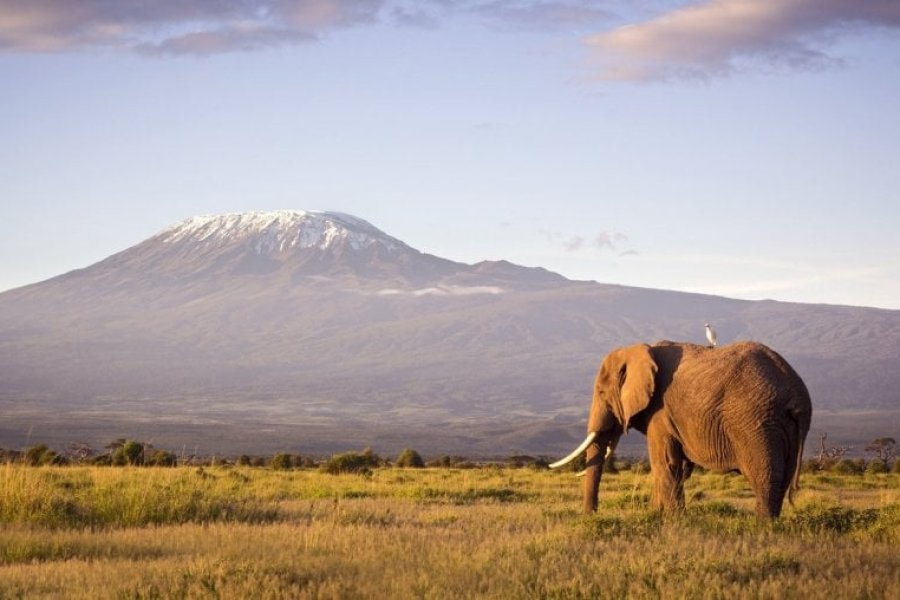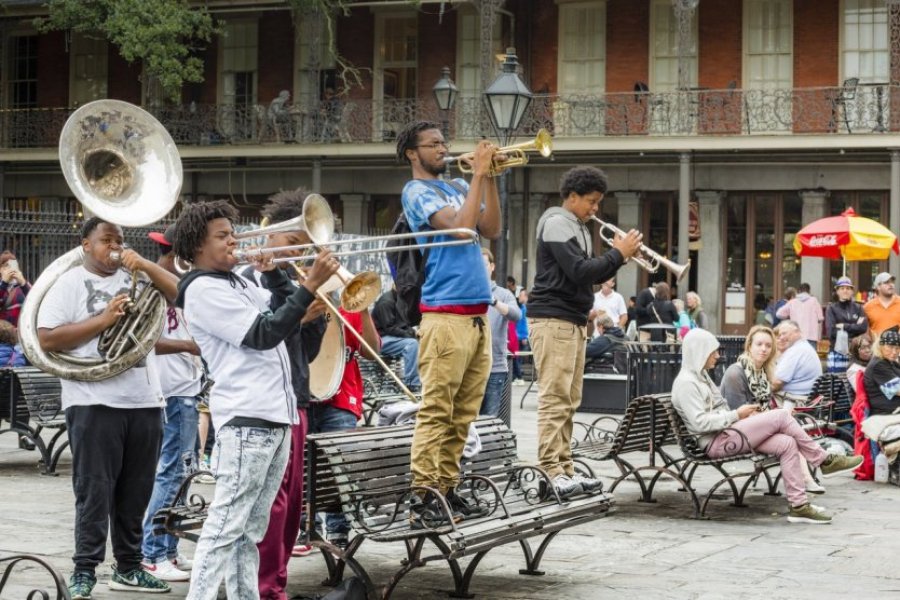Travel Guide Abidjan
In the south of Côte d'Ivoire, on the shores of the Gulf of Guinea and bathed by the Ebrié Lagoon, Abidjan is a modern city, with its skyscrapers and working-class districts. Economic and cultural capital of Côte d'Ivoire, it is an African metropolis of 4.7 million inhabitants, built under the "reign" of Felix Houphouet-Boigny (1905-1993). Known for its modern hotels such as the Golf Hotel or the emblematic Hotel Ivoire, Abidjan is a very popular city for business tourism. Abidjan offers its beaches, palm trees and coconut trees, on the lagoon strip of the Vridi district, very popular on weekends by the wealthy class, tourists and small sellers of pineapple and coconut. Abidjan has a hectic nightlife, around the Milles Maquis, Zone 4 in Marcory, II-Plateaux and Angre in Cocody, not to mention the rue Princesse and Niangon in Yopougon. And all day long, you can enjoy the maquis of the city, especially in the embassy district. Abidjan is home to several remarkable buildings including the mosque of Treichville, Cocody and Plateau, the Cathedral of St. Paul, the Marian Shrine (Attecoube). Do not leave without your travel guide. You can visit the museum of contemporary art in Cocody, the National Museum rich in a collection of Ivorian art, without forgetting the Craft Center of the city of Abidjan (CAVA) in Treicheville where you can buy boubous and souvenirs. You can also discover the Banco National Park, a former "sacred wood" at the gates of the city, a remnant of the primary forest that once surrounded the entire lagoon.
What to visit Abidjan?
Suggested addresses Abidjan
When to go to Abidjan?
When to go to Côte d'Ivoire and stay in Abidjan? As in many West African countries, the tourist season extends from December to April (the main dry season). Apart from some regional variations, during these 5 months, the climate is dry and pleasant, with temperatures ranging between 25°C and 30°C. From April to July, it is the great rainy season, which sees a rise in temperatures and abundant rainfall; this period is therefore rather to be avoided, because the showers, often torrential, make the tracks not very practicable, thus penalizing tourism in certain parts of the country (in particular in the north and west). The ideal climatic period to undertake a trip is from December to April; however, the period from July to September, which is more balanced in terms of temperature and rainfall, is recommended to discover another face, green and humid, of the Sahelian regions of the country (north, east). At this time of the year, the landscapes are indeed of great beauty, because the land, after the great rainy season, is covered with a coat of lush vegetation that contrasts singularly with the dusty drought in force the rest of the time.
Abidjan attracts movie lovers by scheduling several festivals: the Clap-Ivoire Festival, the Spanish Film Festival, the FESNACI, the Short Film Festival (FICA), the Israeli Film Festival of Abidjan, etc.
Weather at the moment
Abidjan has a sub-equatorial climate, hot and humid, with an average temperature of 27°C and an average humidity of over 80%, a long rainy season (May-June-July), a short rainy season (September-November) and two dry seasons. During the rainy season, it can rain for several days in a row or, during impressive thunderstorms, intensely for an hour before the sun returns.
The currency is the West African franc (FCFA). It is better to know, the lack of money is a real plague in Côte d'Ivoire and it can sometimes be difficult to find it difficult to "break" a large bill (10 000 FCFA). In terms of budget, Côte d'Ivoire is a fairly expensive destination. In Abidjan, living in the western way is only slightly cheaper than in Paris.
In addition to a passport that is still valid for a minimum period of six months after the date of return, a biometric visa for Côte d'Ivoire is required (excluding ECOWAS nationals). An international driving licence and car insurance are required to drive a vehicle on Ivorian territory. Be aware that the area is politically and militarily unstable, check with your country's Ministry of Foreign Affairs before leaving.
It is recommended to take a treatment against malaria and to be vaccinated against yellow fever (the vaccine is mandatory). Vaccinations against tetanus, diphtheria and hepatitis A are essential and it is also strongly advised to protect yourself against hepatitis B, typhoid fever, poliomyelitis and meningitis A and C. Another big concern is water. It is not drinkable, so remember to purify it with tablets, or buy bottles of mineral water. Remember to stock up on useful medicines before you leave: anti-diarrhea (with and without fever) and anti-vomiting medication for motion sickness, for example. If the food is excellent in terms of taste, it is not always prepared in good hygienic conditions. Beware of tourista. Finally, protect yourself from the sun. Beware also of the "bar" phenomenon which affects practically the entire coastline of the Gulf of Guinea and requires great vigilance when swimming.
Practical information
- When to travel?
- Weather forecast
- Budget
- Formalities
- Health
- How to travel by yourself?
- How to get organized?
- Getting around
Media
How to go to Abidjan? Our advice & tips
Many organized trips are available to discover Côte d'Ivoire: discovery of Ivorian nature, observation of elephants and chimpanzees, solidarity trips, ecotourism trips, seaside resorts, combined, 4x4 tours, immersion trips with local populations... The offer is varied!
Discover our selection of travel agencies for this destinationYou can quite easily go alone to Côte d'Ivoire. It is advisable to book your flight tickets and accommodation in advance. This will make your trip much easier. If Côte d'Ivoire is a safe country overall, do not forget that it is a relatively poor country and where your wealth can attract envy: be vigilant. Being accompanied by a local guide can be useful, especially to "face" African trails.
The discovery of the country is mainly done by private vehicle (standard or 4x4) or by public transport (bus, gbaka, bush taxi). Locally, it is also possible to use motorized or non-motorized two-wheelers (and yet rather discouraged if one takes into account the road conditions and driving habits of many Ivorians), pinnace, pirogue, or simply on foot.
